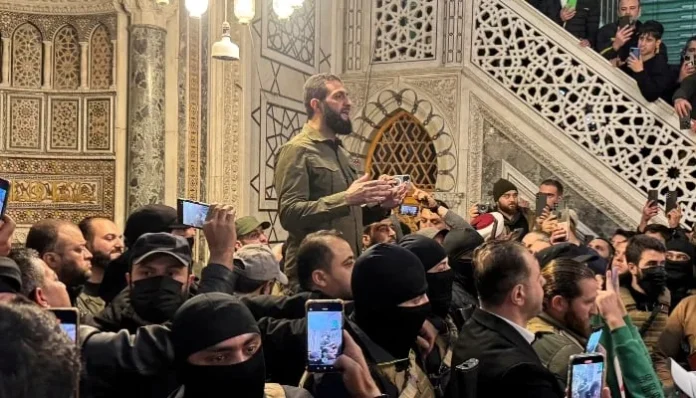DAMASCUS, Dec 12: Syria’s rebel leader Ahmad al-Sharaa, also known as Abu Mohammed al-Golani, has vowed to dissolve the security forces of the fallen Assad regime and close its notorious prisons, which have been a symbol of oppression under Bashar al-Assad’s rule. In a statement to Reuters on Wednesday, Sharaa declared that his forces would also hunt down individuals involved in the torture and killing of detainees, emphasizing that no pardons would be offered.
Syria has long been considered one of the most oppressive police states in the Middle East, especially during the five decades of Assad family rule. Sharaa, whose group, Hayat Tahrir al-Sham (HTS), was once affiliated with al-Qaeda but is now the most powerful force in the country, is navigating the complex task of balancing demands for justice with the need to prevent violent reprisals. His forces, which helped overthrow the Assad regime, must also maintain stability while securing international aid.
The regime’s prisons, such as the infamous Sednaya complex, have been a focal point for many Syrians searching for missing loved ones, with thousands still unaccounted for. In a separate statement on Syrian state TV’s Telegram channel, Sharaa warned that those responsible for torturing or killing detainees would be pursued, and he urged other countries to extradite any perpetrators who have fled.
The international community is closely monitoring the situation in Syria, particularly regarding the potential for violent revenge. The 13-year civil war has been marked by sectarian and ethnic divisions, leaving the country in ruins. Sharaa’s leadership faces the challenge of rebuilding Syria while preventing further violence and gaining international recognition.
The newly formed administration, led by Mohammad al-Bashir, has pledged to return millions of refugees and restore unity while providing essential services. However, Bashir admitted to Italian newspaper Il Corriere della Sera that the administration lacks resources, particularly foreign currency, to kickstart reconstruction. “We are financially in a bad situation,” he said, acknowledging the challenges of rebuilding the war-torn country.
As the world watches, the U.S. and European officials have expressed caution in engaging with Sharaa’s forces, given their history with terrorism designations. HTS remains a terrorist organization in the eyes of the U.S., the United Nations, and the European Union. U.S. Secretary of State Antony Blinken highlighted that any engagement with the new government would require clear commitments to respect minority rights, prevent terrorism, and ensure humanitarian aid reaches all Syrians.
The U.S. has imposed stringent financial sanctions on Syria, and although there have been calls to ease these restrictions, there is no clear path forward. Spain’s Foreign Minister, Jose Luis Albares, suggested that the U.N. and EU may soon discuss the possibility of removing HTS from their lists of terrorist organizations, stressing the urgency of swift action to impact decisions being made in Damascus.
For many Syrian refugees, the prospect of returning home is bittersweet. At the Cilvegozu border gate in Turkey, Syrians waited anxiously to cross back into their country, hoping for a better life after years of hardship. Mustafa, a returning refugee, expressed optimism as he prepared to reunite with his family in Latakia. “We have no one here. We are going back to Latakia, where we have family,” he said.

